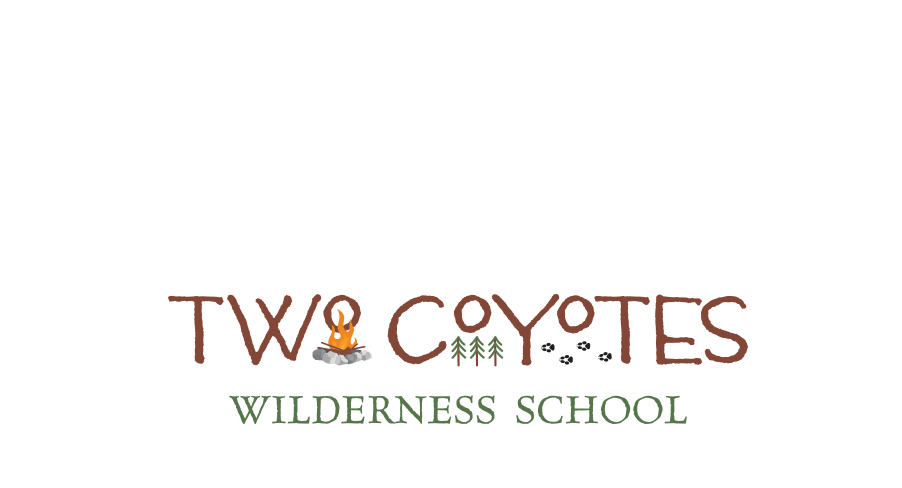
Two Coyotes’ deep impact shines through in students like Charlotte, who is now a teen Fire Keeper and has grown up in our program over the last ten years. She joined as a 5-year old Wild Seed and remembers how her mentors helped her and her peers to problem solve to move through arguments that arose in their group.
Charlotte as an MIT with Wild Seeds
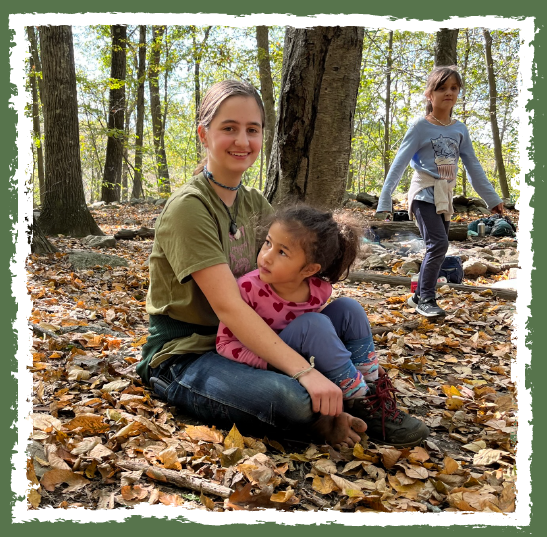
Charlotte noticed that Two Coyotes mentors responded differently to children acting out compared to how she saw adults react in other spaces. Now as a Mentor-in-Training, she too is learning how to help younger kids navigate conflict in a healthy way.

As a teen, she can see the effect of her cumulative hours spent outdoors exploring with other kids and mentors. Charlotte told us, “Nature is not just a place to go. It’s creatures like salamanders under logs. I have always had a deep connection to nature. Being at Two Coyotes has sparked my interest in biology. Plants are fascinating to me: how they interact with their environment, their adaptations over millions of years, what we can learn from the plants, their medicinal purposes, poisonous things.

“Since I was a kid, and more so now as a teen, I have felt the pain of invasive species and pollution, the negative impact of humans. Loving nature and feeling the pain is something that has sparked my interest in working with what I’ve learned about plants to reverse the negative impacts of humans on the land. Having mentors, grownups, and peers acknowledge that, express those same feelings, and teach me what humans have done to the land (or me finding it out for myself) was really big for me.
“Two Coyotes is my community and community is everything. If you’ve had community when you’re younger, it gives you so many things: a place where I can be myself and branch out, to help me understand the many things going on in the world, to find out how passionate and pissed I am about those things. I want to make an impact, as big or small as it is, on different things that I’m passionate about that are going on in the world. Knowing there is a community behind me, or friends that I can lean on, a place that is safe to go back to… I feel confident even when the people I’m talking to don’t accept me for who I am. I know there are people in my friends and family who do accept me. I am not alone. Everybody should have that.

“I can have an impact gardening in my own yard, and can bring other people into my passions too. I want to be a climate activist, and I can act directly on what I see as the problem, not just protesting. I can do the work to make it easy for other people to get involved.”
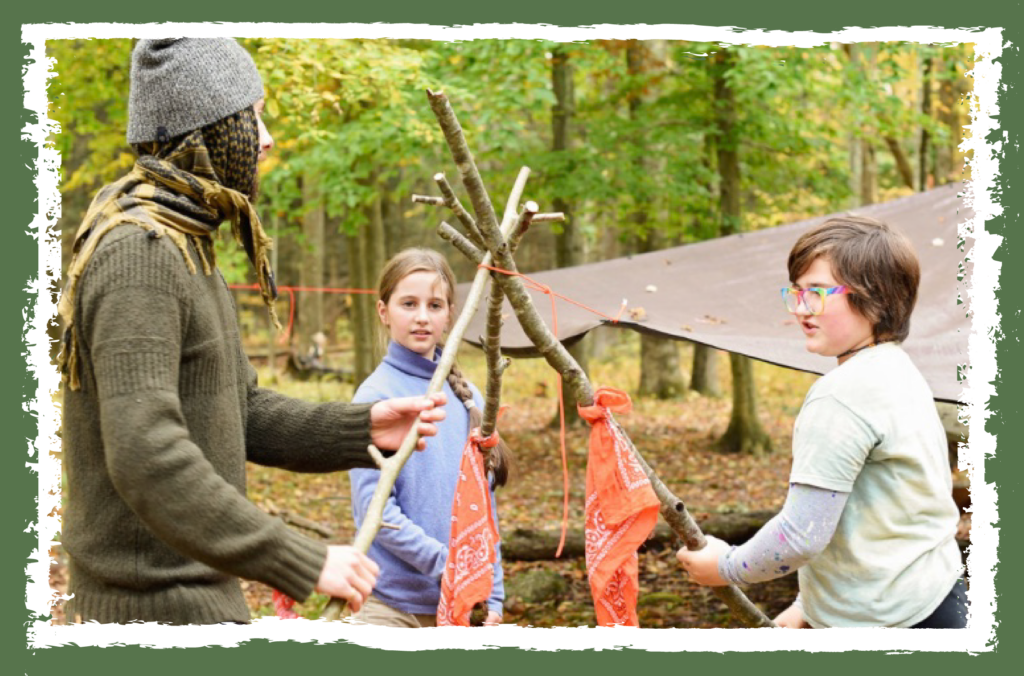
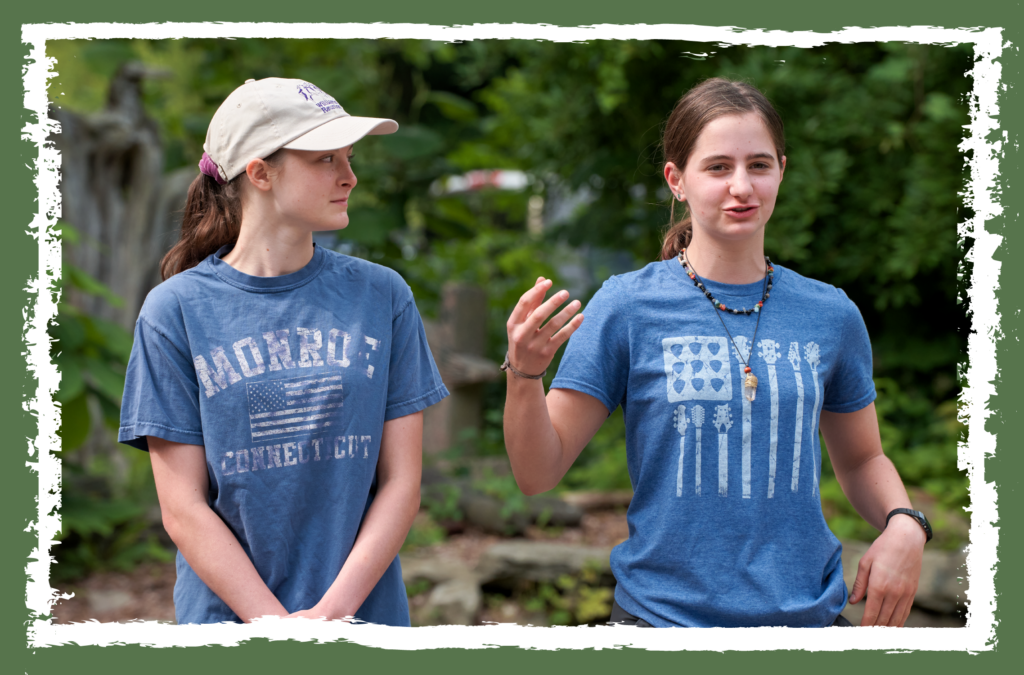
Charlotte’s mom (and Two Coyotes mentor), Katie shared with us, “Charlotte feels a sense of responsibility and relationship to the land and her impact on it. She thinks about it a lot. It’s tied directly back to the cultural pieces (the stories, the energies) that Two Coyotes exudes in its philosophy – the relationship that we have with our non-human kin. What’s unique about Two Coyotes is that learning is not didactic: ‘I’m going to tell you how damaging and horrible this is, and how to fix it.’ Instead, it starts from a relational place: kids building relationships with each other and mentors. Their mentors create space for their gifts to move up through the soil, emerge, and be tended.
“What does it mean to be in relationship with the land, to see beyond what the culture has deemed as worthy and valuable, to take action, to be thinking about people and non-human kin beyond yourself, to be a good ancestor? For a fifteen year old to be thinking that way, it’s a direct line back to starting as a Wild Seed when Charlotte was 5 years old. It’s all based in the awe and reverence, the direct personal relationship with the land she’s living on.
“After 10 years at Two Coyotes, Charlotte saw invasive species taking over the land in her backyard where she does her sit spots, builds fairy houses, watches northern water snakes. It’s because of her time at Two Coyotes that she knows these creatures, their life spans, their habitats, their tracks and signs in the woods, how they relate to the ecosystem. All of a sudden it started to shift dramatically and she noticed they were invasive plants, so she started to do research, talk to her mentors, find out what’s going on, and felt like she needed to do something.
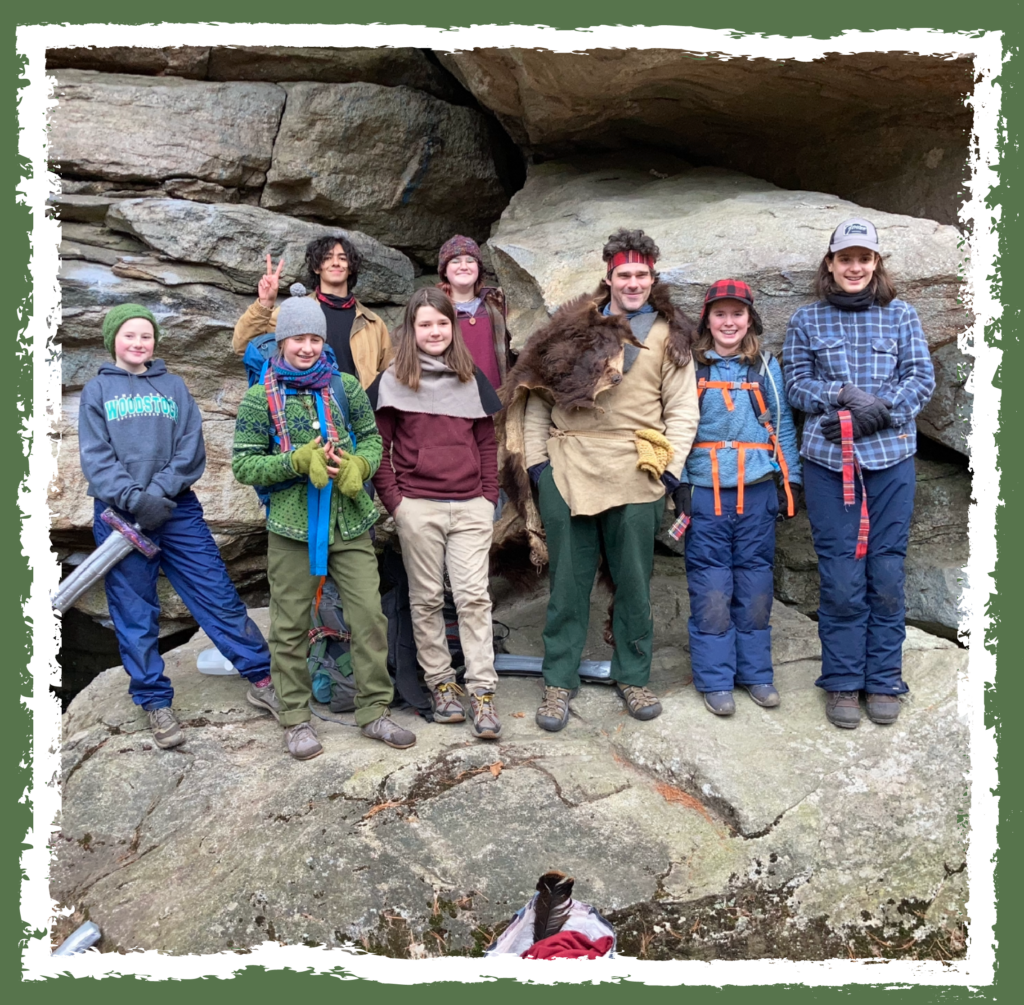
“In her Fire Keeper class, they have the opportunity to express grief for ecological crisis and the environmental horrors happening to different species in different places on the planet. There’s space to express grief about injustice, feeling hopeless and powerless to make an impact, feeling trapped. By holding space for those feelings, it opens the door for them to realize their own agency, their potential for power and taking action.
“Getting the support of her Two Coyotes mentors buoyed her in a big way. 7 mentors showed up to pull weeds in the forest. To see that they circled around her and supported her gave her another nudge to believe that others will get behind her if she takes action. At the same time, conversations within Fire Keepers about equity and justice helped her to move through her anger and frustration (‘Why is this Land Trust land in the first place? Why do I have to go to these white men for permission? Who are they to be the stewards of the land?’) to acknowledge we can use imperfect systems to make a positive impact. She decided to approach her local land trust to organize a work party and do the work on a larger scale. She submitted a proposal, got funding, and invited 30 friends and mentors to join her.
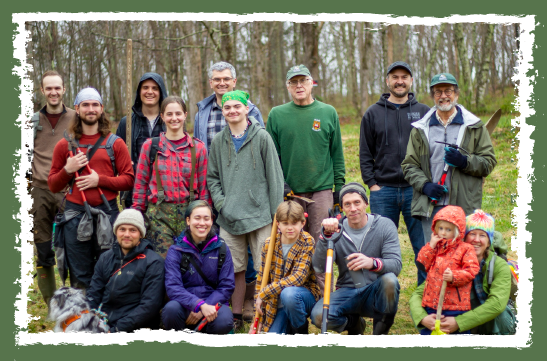
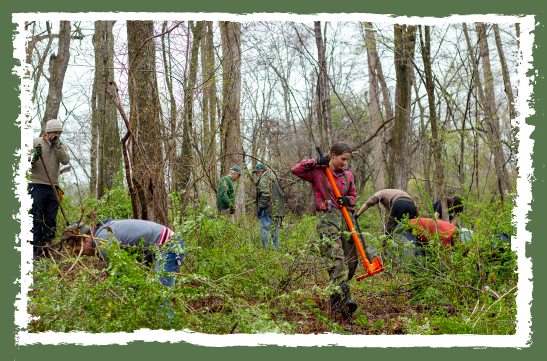
“Charlotte wouldn’t have had the backbone and confidence to do that as a dyslexic person with major cognitive language-based disabilities if she hadn’t been at a place that looked beyond how she presented to see there are real gifts in there. Her own sense of power to do something and be in action. For someone like Charlotte, that isn’t what you’d get in other educational contexts where there is a very clear curriculum being impressed upon you.
“Charlotte originally came to Two Coyotes to heal, at the recommendation of a therapist who was treating her for medical PTSD after surviving abuse. The therapist told her she needed to spend time outside grounding herself in nature, among people who don’t have an agenda for her. She had a traumatic brain injury, and was dealing with the consequences on her sleep and emotional dysregulation. At a time in her life where she was going to bed at 3pm and waking up at 3am, and had no ability to tolerate frustration, she experienced an immediate shift, a total 180. It was the only day of the week where she was regulated. And the longer she continued in the program, the more we saw it spill into our home life.
“She developed skills like sit spot at a young age. She would visit a specific tree when she was upset to calm down. At the same time, we pulled her out of school because of emerging learning differences as well as her medical needs. At Two Coyotes, she discovered that she has a way of knowing and relating to things that is uncommon, but there’s nothing wrong with her. There’s actually a gift in there.
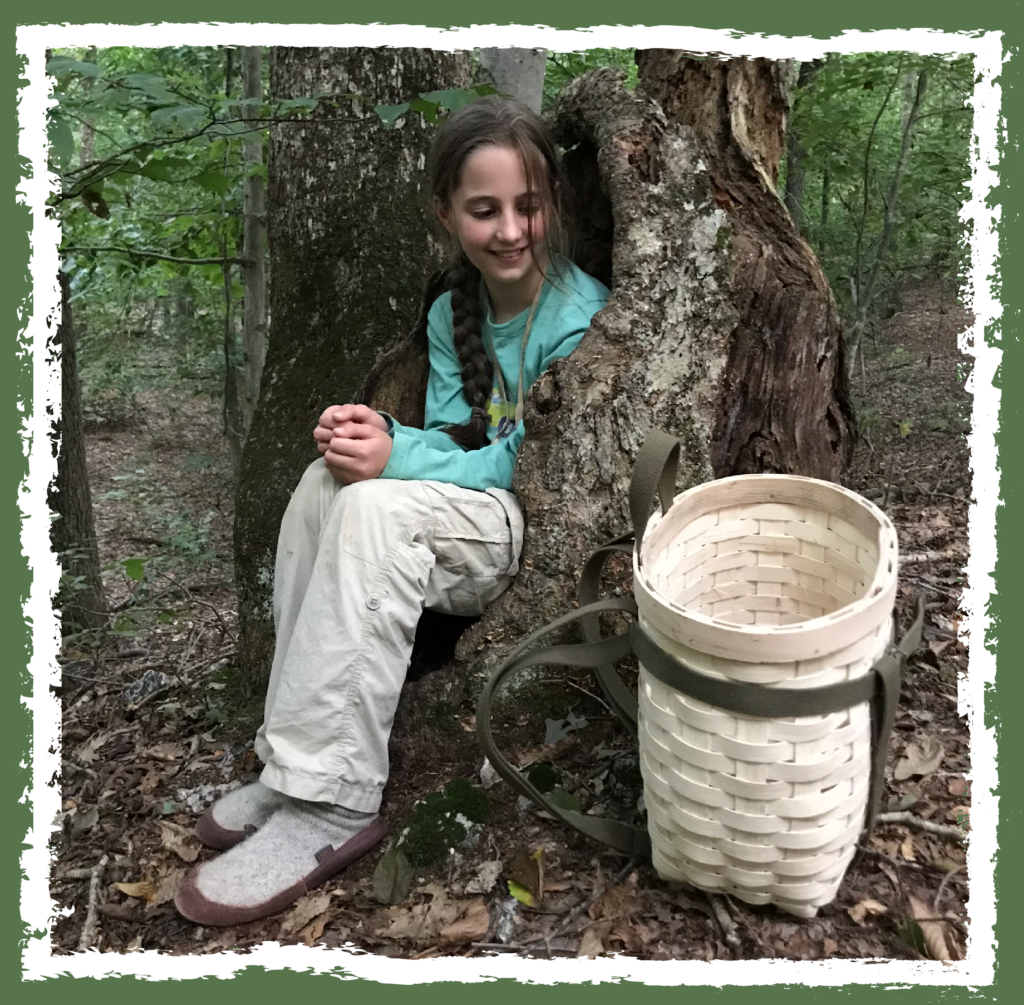
“Charlotte can’t follow taxonomy in a plant field guide, but she knows the plant being referenced without following the scientific system. Her mentors saw that and named that for her so that she could see that she wasn’t broken and there wasn’t something wrong with her. It provided a critical counterweight to the messaging she was getting in the rest of society that was hyper-focused on linear and logical learning.
“There is no way she could have approached the Land Trust if she hadn’t been supported by Two Coyotes and her mentors for the last ten years. A parent can’t counter the mainstream in isolation, no matter how much you are pouring into the culture of your home and your parenting approach.”

As we face today’s biggest crises, we – the adults – have the opportunity to listen to the kids. We can follow the leadership of our youth, who, like Charlotte, are growing up as whole, healthy beings that embody their interconnection with nature, foster caring community, and are committed to creating a more equitable and inclusive world for the next generation.
Help us to Achieve the Fullness of our Mission
Please consider making a gift to support Two Coyotes Wilderness School and share this invitation with a friend or family member. Your generosity not only nurtures the next generation but also actively contributes to the pursuit of social change in the name of equity and justice during these transformative times. We can’t do this work without you!
Contact Maggie Gotterer, Executive Director, at maggie@twocoyotes.org for more information about our programs and supporting our mission.
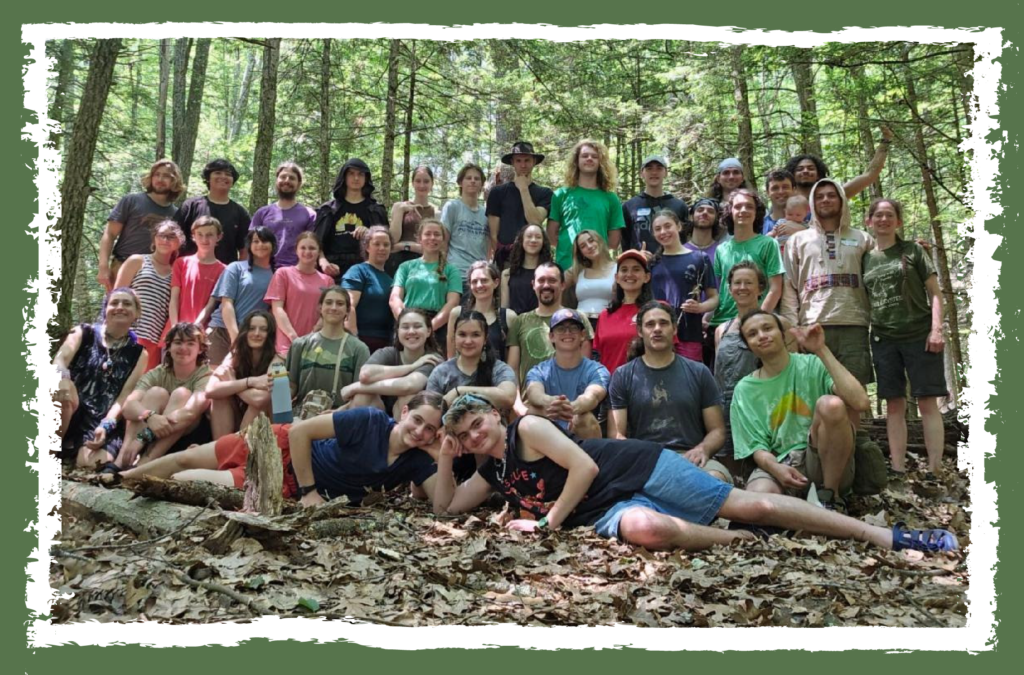
On behalf of our summer staff & mentors-in-training, we thank you for your support!
